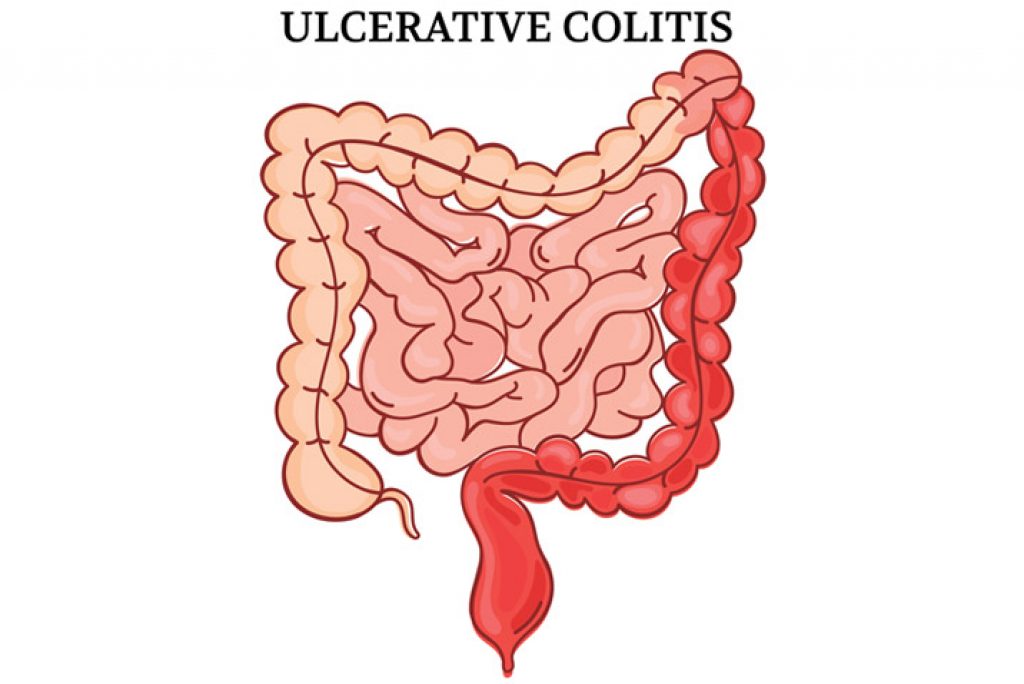What is Ulcerative Colitis? – Symptoms, Causes, Treatment & More
Ulcerative Colitis – Did you know that a human can get more than 10,000 diseases? Yes, the number of exact diseases for humans is not fixed, but a congressman mentioned in the US Congress that a human could get around 10,000 diseases.
You don’t have to learn about every disease in the world as it is somewhat not possible for every person on this earth. The best thing you can do is learn about that disease according to your age and medical condition.
At a young age, we do not get many diseases, but as we progress to advanced age, we start experiencing diseases we never even heard of. One of those diseases is ulcerative colitis. The United States records around 200,000 cases of ulcerative colitis each year, and it is among the rare diseases in the country.
Today, we will discuss everything regarding the disease so that you can ensure your safety if you get it. Even if you are struggling with the disease, you will learn a lot about it. We will discuss everything from the basics to the top.
Table of Contents
What is Ulcerative Colitis?
Ulcerative colitis is an inflammatory bowel disease that is known to cause inflammation and ulcers in the digestive tract. It is known to impact the lining of our large intestine, also known as the colon and rectum.
Most people develop symptoms associated with the condition over some time rather than any other quick disease. One of the worst parts about ulcerative colitis is that there is no fixed treatment available for that disease, as health experts are just using medicine to lower the impact of different symptoms.
Types of Ulcerative Colitis
As you might already be aware, ulcerative colitis can affect different body parts, and healthcare providers classify them according to their locations.
There is one more thing you should keep in your mind, and that is the symptoms. Different types of ulcerative colitis can have different symptoms.
- Ulcerative proctitis is the first type of ulcerative colitis. When the inflammation is closest to the anus, it is known as ulcerative proctitis. Usually, people experience rectal bleeding if they are struggling with ulcerative proctitis.
- Proctosigmoiditis is another type of ulcerative colitis. When inflammation is in the rectum and sigmoid colon, People will start experiencing bloody diarrhea with minimal cramps and abdominal pain.
- Another common type of ulcerative colitis is left-sided colitis. If inflammation extends from the rectum up through the sigmoid and descending portions of the colon, It is known as left-sided colitis. People experience symptoms such as bloody diarrhea, abdominal cramping, and pain on the left side of the stomach.

Symptoms of Ulcerative Colitis
Before we discuss its right causes or treatment options, let’s take a look at the symptoms of ulcerative colitis. One of the worst parts about this disease is that the symptoms can be a little bit different depending on the person.
Health experts around the world believe that two people affected with the same condition might not have similar symptoms. We are also going to discuss the most common symptoms of the condition. At the same time, the intensity of these symptoms can also vary depending on the severity of the disease.
The Centers for Disease Control and Prevention of the United States also acknowledged the probability of the below-given symptoms when it comes to symptoms of ulcerative colitis.
- Abdominal pain
- Diarrhea
- Rectal bleeding
- Rectal pain
- Irritability
- Weight loss
- Fatigue
- Fever
- Bloody stools
- Malnutrition
- Joint pain
- Joint swelling
- Skin problems
- Mouth sore
As you can see in the above-given list, the symptoms of ulcerative colitis will go on and on as the digestive tract is known to cause hundreds of different symptoms.
For example, diarrhea is known to cause extreme weight loss in a short period. At the same time, extreme weight loss and diarrhea are also known to cause malnutrition. Most of these symptoms are connected, and they can change depending on your previous medical history.
If you have been affected by the disease, then we highly recommend you consult about these symptoms with your healthcare provider right away. People who already have a medical history might experience different symptoms with a higher intensity as compared to a completely healthy person.
When do You Consult a Doctor for Ulcerative Colitis?
Once you have learned the basics about alternatives, once you have learned the basics about alternative quotes as common now, it is time for you to learn about the time when you should be consulting with your healthcare provider.
Even though we highly recommend everyone to go for an annual body checkup, as it is more capable of detecting diseases like ulcerative colitis, you can also consider the below-given points when it comes to consulting with your healthcare provider.
- If you are experiencing blood in your stool, you should call your healthcare provider right away. A lot of people think that blood in stool is usually caused by hemorrhoids, but it is not true.
- You are also supposed to consult with your healthcare provider if your abdominal pain is not going away.
- If you are experiencing diarrhea and it is not getting better even after taking medicine, you should consult with your healthcare provider.
These are the two conditions when you should not ignore the symptoms and consult with your healthcare provider as early as possible. A lot of people do not take these symptoms very seriously, but they can impose a huge risk, as the disease is known to cause life-threatening conditions.
Causes and Risk Factors of Ulcerative Colitis
Similar to several other diseases, health experts are not sure about the right causes of ulcerative colitis. A lot of health experts around the world believe that diet and a stressful lifestyle are one of the biggest causes of ulcerative colitis, but it is also not true.
The exact causes of ulcerative colitis are still unknown.
Some health experts around the world believe that immune system malfunction is also one of the biggest causes of ulcerative colitis. We already know that the immune system is known to fight itself if it is not working right, and it can also be the cause of ulcerative colitis.
At the same time, people with a family history of ulcerative colitis are more vulnerable to developing it in the future.
- Even though health experts believe that ulcerative colitis can occur at any age, it usually develops before the age of 30 or after the age of 60. We don’t know the right causes, but the data has been suggesting the trend.
- At the same time, white people are also more vulnerable to developing the disease as compared to any other race. Health experts believe that Ashkenazi Jews are right and are in the highest risk category as compared to any other race.
- If you have a family history of ulcerative colitis, then health experts will suggest you consult with your healthcare provider anytime you visit for an annual checkup.
How Serious is Ulcerative Colitis?
Ulcerative colitis is a serious disease, and you should seek treatment as early as possible.
- One of the biggest risks of ulcerative colitis is that it isn’t known to develop colon cancer. Yes, people who are struggling with the condition should consult with their healthcare provider, as cancer is much riskier than ulcerative colitis.
- People who have ever experienced the symptoms of ulcerative colitis are also suggested to go for screening every one to three years.
- Ulcerative colitis is also known to cause severe bleeding, which can further increase the risk of several other diseases.
- Severe dehydration and bone loss are also associated with the risk of ulcerative colitis.
- Inflammation of the skin, joints, and eyes is also an integral part of ulcerative colitis.
What are the Treatment Options for Ulcerative Colitis?
The treatment options for ulcer relatives are dependent on the type and severity of the disease. Your healthcare expert is going to use a combination of therapy, surgery, and medicine to treat your condition.
In cases where the condition is not serious, your healthcare provider might suggest you only take medicine, while in severe cases, your healthcare expert might suggest you go for surgery.
At the same time, your healthcare expert will also use a combination of medicines, including immune suppressors and anti-inflammatory medicines, to treat your condition.
Is surgery necessary for Ulcerative Colitis?
The option of surgery depends on the severity and the type of answer native politics. If the condition is not severe, then healthcare experts will suggest you opt for medicine and other treatment options. Surgery is only necessary when the condition gets severe, and it can become colon cancer.

